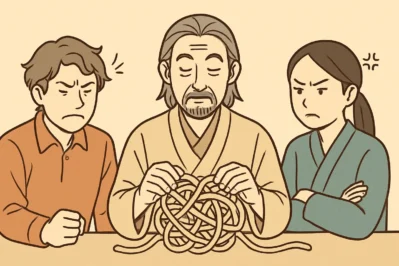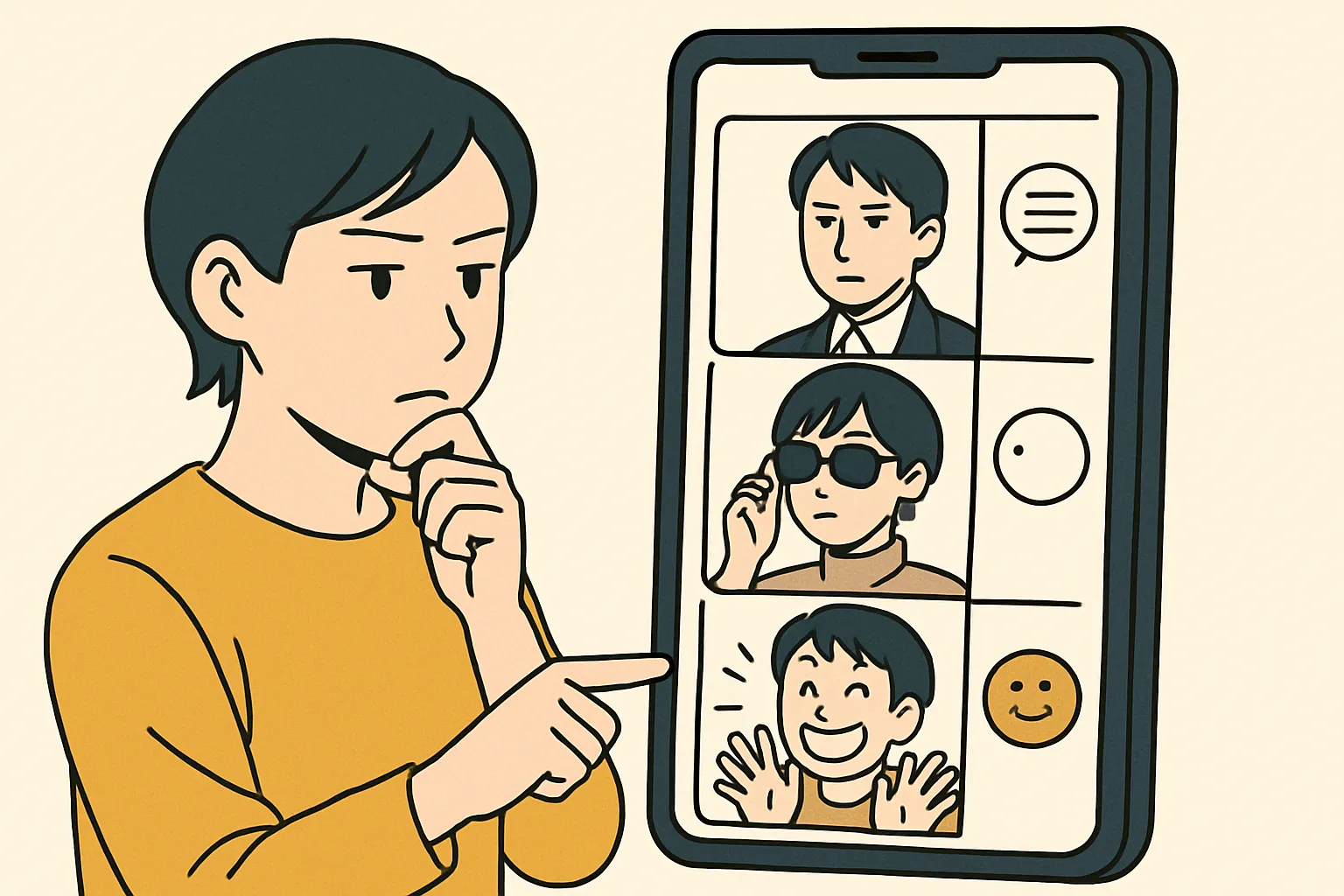Korea’s ‘Neighborhood Mediators’: Master the Language of Understanding
Hello! It’s Daily Hangul, here to upgrade your Korean skills to the next level!
Today, we’re diving deep into a topic that requires both linguistic precision and cultural finesse: mediating cultural misunderstandings within a community. This is for those moments when a simple “I’m sorry” isn’t enough. You’ll learn how to navigate complex situations with confidence and empathy.
Lately in Korea, there’s been a surge in popular YouTube content featuring “동네 중재자” (Neighborhood Mediators). These creators visit diverse neighborhoods like Itaewon or Ansan to help residents—both Korean and foreign—resolve small but significant cultural conflicts. This trend shows a growing interest in dialogue and mutual understanding. Today, we’ll equip you with the advanced vocabulary you need to become a thoughtful mediator in your own community.
Key Expressions for Mediation
Here are some essential expressions to help you navigate and resolve cultural friction like a pro.
1. 입장 차이 (ipjang chai)
* Pronunciation: [ip-jjang-cha-i]
* English Meaning: A difference in standpoint/perspective; a gap in positions.
* Detailed Explanation: This is a sophisticated term that goes beyond simply having a “different opinion” (다른 의견). 입장 refers to one’s position, stance, or circumstances, while 차이 means difference or gap. Using 입장 차이 acknowledges that the disagreement stems from fundamentally different situations or perspectives, not just a simple disagreement. It’s a neutral, formal term perfect for describing the root of a conflict without placing blame.
2. 중재에 나서다 (jungjae-e naseoda)
* Pronunciation: [jung-jae-e-na-seo-da]
* English Meaning: To step in to mediate; to take the initiative to arbitrate.
* Detailed Explanation: 중재 means mediation or arbitration. The verb 나서다 is key here; it means “to step forward” or “to come forward.” It implies taking active, voluntary initiative. So, 중재에 나서다 isn’t just “to mediate,” but to proactively step into a situation to help resolve it. It carries a sense of courage and social responsibility.
3. 역지사지 (yeokjisaji)
* Pronunciation: [yeok-ji-sa-ji]
* English Meaning: Putting yourself in someone else’s shoes.
* Detailed Explanation: This is a Saja-seong’eo (사자성어), a four-character idiom derived from classical Chinese, which makes it a very refined expression. Literally, it translates to “exchange land and think.” It’s the Korean equivalent of “walking a mile in someone’s shoes.” You often use it with words like 역지사지의 마음으로 (with the spirit/heart of yeokjisaji) or 역지사지해 보세요 (try to see it from their perspective). It’s a powerful word to appeal to empathy.
4. 오해를 풀다 (ohae-reul pulda)
* Pronunciation: [o-hae-reul-pul-da]
* English Meaning: To clear up/resolve a misunderstanding.
* Detailed Explanation: 오해 is a “misunderstanding.” The verb 풀다 literally means “to untie” or “to solve” (like a math problem). When used with 오해, it creates the beautiful image of untangling a knot of misunderstanding. It implies a process of careful explanation and listening to reach a resolution, which is more nuanced than simply “getting rid of” the misunderstanding.
Example Dialogue
Let’s see how these expressions work in a real conversation about one of those popular “Neighborhood Mediator” YouTube videos.
A: 어제 새로 올라온 ‘동네 중재자’ 안산 편 봤어? 층간 소음 때문에 갈등이 심각하더라고.
(Eoje saero ollaon ‘Dongne Jungjaeja’ Ansan pyeon bwasseo? Cheunggan soeum ttaemune galdeung-i simgakadeorago.)
A: Did you see the new ‘Neighborhood Mediator’ episode in Ansan yesterday? The conflict over noise between floors was serious.
B: 아, 봤어. 두 이웃 간의 입장 차이가 너무 명확했지. 한쪽은 생업 때문에 어쩔 수 없었다고 하고.
(A, bwasseo. Du iut gan-ui ipjang chai-ga neomu myeonghwakhaetji. Hanjjok-eun saengeop ttaemune eojjeol su eopseotdago hago.)
B: Ah, I saw it. The difference in standpoint between the two neighbors was so clear. One side said it was unavoidable because of their livelihood.
A: 맞아. 다들 감정적으로만 대응할 때 유튜버가 용기 있게 중재에 나섰어. 그게 정말 인상 깊었어.
(Maja. Dadeul gamjeongjeogeuro-man daeeunghal ttae yutyubeoga yonggi itge jungjae-e naseosseo. Geuge jeongmal insang gipeosseo.)
A: Right. When everyone was just reacting emotionally, the YouTuber bravely stepped in to mediate. That was really impressive.
B: 응, 역지사지의 자세로 양쪽 이야기를 다 들어주니까 결국 사람들이 마음을 열더라. 그걸 보고 서로의 오해를 풀 수 있었던 것 같아.
(Eung, yeokjisaji-ui jasero yangjjok iyagireul da deureojunikka gyeolguk saramdeuri maeum-eul yeoldeora. Geugeol bogo seoroui ohae-reul pul su isseotdeon geot gata.)
B: Yeah, because he listened to both sides with an attitude of putting himself in their shoes, people eventually opened up. I think they were able to resolve their misunderstanding after seeing that.
Culture Tip & Trend Deep Dive
The “동네 중재자” (Neighborhood Mediator) trend isn’t just for entertainment; it reflects a significant shift in Korean society. As Korea becomes more multicultural, the need for nuanced communication is growing. People are moving away from a culture of 참다 (to endure/suppress) and towards one of 소통하다 (to communicate).
Pro Tip: When you’re in a discussion about a sensitive issue, using a term like 역지사지 instantly elevates your argument. It shows you’re not just fluent in Korean, but also attuned to the cultural value placed on empathy and collective harmony. It frames the issue not as a battle to be won, but as a problem to be solved together. This vocabulary is your key to participating in high-level discussions on social issues, just like you might see on Korean news panels or debate shows like “100분 토론.”
Let’s Practice!
Ready to put your new knowledge to the test?
- Fill in the blank:
갈등을 해결하기 위해 가장 먼저 해야 할 일은 서로의 ( ________ )를 이해하는 것이다.
(The first thing to do to resolve a conflict is to understand each other’s ( ________ ).) -
Sentence Building:
Imagine your two friends had an argument because of a cultural misunderstanding. Using the expression 오해를 풀다, write a short sentence describing how you helped them.
Great job today! Navigating intercultural dynamics is a true sign of an advanced learner.
Now, it’s your turn! Leave a comment below using one of today’s expressions. Have you ever had to step in and mediate?






